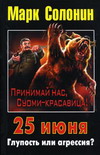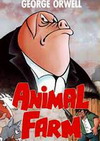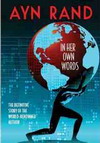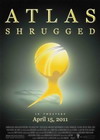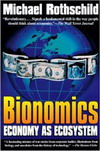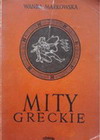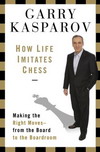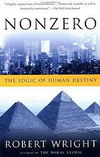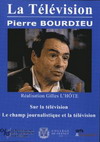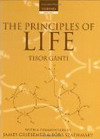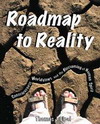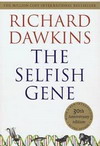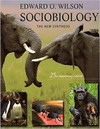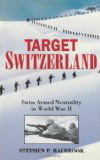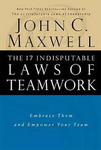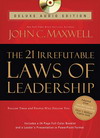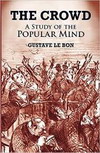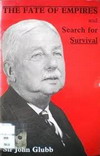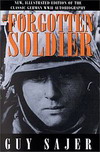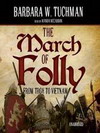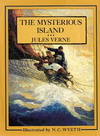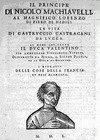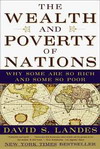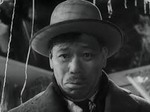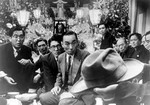Recommended by me: books and films
Someone once wisely said: Books are the best source of knowledge. I, unfortunately, came to the right ones too late.
These books and films had a big impact on the creation of The Physics of Life. The items, I consider as the biggest achievements of human thought, have been labelled with up to three stars. I recommend these to help you to understand the world in which you live.
The list is alphabetical and is subject to alteration...
The Physics of Life
recommendations
25th of June: foolishness or aggression? Animal Farm Aquarium Atlas shrugged Bionomics Cybernetics and character Devil's Mother Greek Mythology How Life Imitates Chess Influence: Science and Practice MAO Nonzero: The Logic of Human Destiny On television Principles of Life Roadmap to Reality Selfish Gene Sociobiology Target Switzerland The 17 Indisputable Laws of Teamwork The 21 Irrefutable Laws Of Leadership The crowd The Dark Side of Man The Defence of Leningrad The fate of empires The Forgotten Soldier The French Revolution The March of Folly The Mysterious Island The Prince The trap. A man and socialism. War with the Newts The wealth and poverty of nations
| Title | Synopsis | Rating | ||||||||||||||
|---|---|---|---|---|---|---|---|---|---|---|---|---|---|---|---|---|
| ||||||||||||||||
| A book about resources and fighting for them, set in the environment of World War II. "Humanism" and "good people" are merely camouflage used by primitives and looters who, on one hand, kill indiscriminately and use the other to take all the resources... not only from foreigners, but also from compatriots! It is clear, in this book, that the Soviet Communists killed far more of their own than Germans. Orwell and his Ministry of Thought (1984) was fiction, but in this book we have the bare facts that hold no illusions as to how a great state like the USSR treated its smaller neighbours. The question is: "Do the same things happen nowadays?". This book is not only about war, but everything surrounding war: diplomacy, production, management and organization, lies, generals and privates, external and internal propaganda and the real effects of all this terrifying chaos. Soviet aggression towards Finnland was explained by the necessity of ensuring the safety of Leningrad. To ensure this, the Soviets constructed military bases in Lithuania, Latvia and Estonia. Then a new problem arose, how to make them secure... This safety was just a pretext for looting and plunder, and everything which was reported by the Soviet media were lies. What is the true story of the Soviet Union? [...] This truth is unwrapped by a web of half-truths, quarter-truths and outright lies spun by Stalin and his successors. Even the Augean stables were quite pleasant and orderly places compared to the abyss of the Soviet archives. Mark Solonin, as a front-line soldier, operates in the darkest corners of these archives With great pleasure and passion he filters out the fiction from the facts, dragging it, kicking and screaming, into the light of day. "June 25: foolishness or aggression?" is another blow against the hypocritical history and wheelbarrows of shit transported out from the Augean stables known as Soviet history. | Source of knowledge
| ||||||||||||||
| ||||||||||||||||
|
"Animal Farm" is a wonderfully written book, understandable for everyone. It describes a universal model showing the basic mechanisms of a functioning society. The main roles in this novel are farmyard animals which reperesent human social groups: pigs - govern; sheep are docile, the ruled mass of people; dogs, fully controlled by pigs, security; horses work, etc. In all of this, only donkey thinks independently. If Orwell had used a human model this would not be so clear. However, in the last sentence of the book, he points out that this was a deliberately literary machanism: The creatures outside looked from pig to man, and from man to pig, and from pig to man again; but already it was impossible to say which was which. He fought at the front on the Republican side in the workers' militia, the anti-Stalinist Workers Party of Marxist Unification (POUM), and then trensferred to the England branch of volunteers sent by the British Independent Labour Party. He took part in the fighting on the Aragon front. After the banning of POUM and the outbreak of fighting in May 1937 between anarchists and Stalinists, a "civil war within the civil war", he was hiding with his wife scared of reprisals. He was chased by the Civil Guard, controlled by Moscow and led by NKVD member Alexander Orlov), who ordered the liquidation of POUM (in June 1937) by murdering its members, including the soldiers fighting on the front. On May the 20th, 1937, he was shot by a sniper. On June the 20th, he crossed the French frontier and returned to England. His memories of this period were used in the autobiographical book "Homage to Catalonia", [..] who was disclosing the criminal role of the Soviet secret police NKVD and the GRU in Spain and the true actions of Stalinists against the Spanish Revolution. [Wikipedia pol., publ. 2011.04.14] It was those experiences which inspired George Orwell to write both "Animal Farm" and "1984" - books very often forbidden by totalitarian regimes. Genius and a model for impartial journalism that all journalists should follow. When anybody mentions Orwell, these associations come into my head. Other notable books by the author:
He didn't copyright his book so they are freely available on the internmet. | Source of knowledge
| ||||||||||||||
| ||||||||||||||||
|
There are books for engineers on how to build cars or build bridges, there are books for doctors on how to treat patients. All of them allow you to understand the issue and provide rules of behaviour. The book "Aquarium" by Victor Suvorov, although many see it as a kind of biography, is the de facto textbook for engineers of human souls. If you are interested in how people are manipulated - this book is for you. A practical analysis of the methods used by the top secret military foreign-intelligence service of the USSR. This knowledge was, until recently, top-secret, even now it is still not well known.
| Source of knowledge
| ||||||||||||||
| ||||||||||||||||
|
Ayn Rand (1905-1982). She witnessed the Bolshevik Revolution when she was just 12 years old. For a decade, she watched the Soviet people's efforts to improve their individual balance sheet of losses and benefits at the expense of others. In her case, it began by the nationalization of the pharmacy owned by her father, and ended with confiscation of the entire family estate. At the age of 21, she managed to leave the Soviet Union and escape to the United States. Published in 1957, "Atlas Shrugged" was placed second in the list of books which affected American lives the most, only behind The Bible. For Ayn Rand, the segregation of society is not relevant. She does not write about the differences between rich and poor, white-collar and blue-collar workers, Poles and Germans, the basic division is the social utility of individuals. Like The Physics of Life, she divides people into Atlases and Looters. The former are those who create and produce whilst the latter are those who only consume. Atlases push the world forward, producing desired goods and making innovative breakthroughs. Looters avoid having to produce, they actively take from others without giving anything in return. For this, they employ a whole range of tactics to cheat based on von Sociall, von Kroessus and von Neumann tactics. They conceal their larceny by emotional slogans showing concern for the public good and to help others. In reality, however, it is for their own purposes, they use the mechanism of Natural pressure for social exploitation which, as history shows, leads many countries to starvation and economic disaster. The author's principle task was to enveil the sophisticated methods used by looters from many professional groups. We have detailed explanations of the intricate behaviour of scientists, politicians, government officials, businessmen, simple workers, and even unemployed housewives. The motivation of Altases is mundane: When you accept money in payment for your effort, you do so only on the conviction that you will exchange it for the product of the effort of others.. We are all egocentric, and every community's well-being depends on clean, undefiled free exchanges. But those who argue are lying, driven by their own self-interests. The 1300 pages are devoted to exposing the methods of looters so we can understand them and not be deceive by them. Anyone who is trying to force people to work for free, by any means, contributes to economic collapse and eventual killings and rapes. Her vision of an ideal system was: "such a political system must be based on only one moral principle: no one can take someone else's property by force". The Physics of Life extends "force" to "theft, robbery or looting", because recently, taking over someone else's property mainly takes place in the "white collar environment", eg.: a bank foreclosure on a mortgage. | Source of knowledge
| ||||||||||||||
| ||||||||||||||||
|
The book investigates the connections between matter, energy and information submitted to the process of biological evolution. The author shows that this process picks out those organisms (living objects) which behave in an optimal way from the perspective of economics. It corresponds very well to the Physics of Life principles and terms such as resergy, biological evolution, victory factor and more... Using simple and logical examples from everyday life, Rothschild explains how even the smallest details can have an enormous impact on the chain of survival of objects, societies and ideas (e.g.: memes). Although there are some unfavorable reviews, I strongly recommend reading this book to get a deeper understanding of
Review by Thomas J. Elpel from the Web World Portal
| Source of knowledge
| ||||||||||||||
| ||||||||||||||||
| The first sixty pages are a beautiful introduction into the world of cybernetics. Mazur was one of the few scientists who critically and scientifically analyzed the work done by himself and his peers. According to Mazur, to understand the world you need to unite three elements: logic, mathematics and cybernetics (the science of how everything happens) - "Cybernetics and character" provides an excellent basis for cybernetics. Bibliography: | Source of knowledge
| ||||||||||||||
| ||||||||||||||||
| 22 years after the release of "Aquarium", Suvorov, aka Rezun, provides more great work. "Aquarium" brilliantly explained the Soviet military intelligence, "Devil's Mother" exposes socialism in a similar literary style. Great knowledge of life, which he learnt in schools for spies, verified in practice and using simple language, allowed him to exposure socialisms, in all its forms, in full. In almost a mathematical way, the book proves that socialism is a system of incredible exploitation and it naturally gravitates towards a complete economic collapse. There is no sense to write more about this book, you just have to read it. From my early childhood I have tried to understand what socialism is. Over many years I collected more than four hundred definitions. Then I stopped this practice, realizing that there are as many socialisms as there are socialists. Early on, comrade Lenin understood socialism in a certin way, later, even he saw it differently. After all that time, I finally found the common idea or the common denominator. What all socialists profess is the same, in one form or another. Take any manifesto of any socialist party, materials from any of their meetings, be it a fiery revolutionary or slogans from a progressive trade unions, then reject the empty words and platitudes - and there are there a lot of them - compress what is left and you will discover the essence: we will work less and less, and take more and more. | Source of knowledge
| ||||||||||||||
| ||||||||||||||||
| My mother read the Greek myths to me when I was 5-6 years old. I would recommend the texts developed by Wanda Markowska, other editions can be dry and have completely no effect on the imagination. Excluding the fantasy, myths carry a profound message about the functioning of societies:
| Mem
| ||||||||||||||
| ||||||||||||||||
|
This book can be considered as a rapid introduction and supplement to The Physics of Life, because Kasparov has presented his thoughts on how game theory has been applied in life. In his book, "How life imitates chess," Kasparov examines his own conclusions from being a chessmaster and his political career. Readers are shown the set of methods to achieve success, mastering techniques from the oldest game in the world. He shows how to evaluate opportunities, evaluate future situations and to design winning strategies. Kasparov discusses the fundamental factors that make up the process of making the right decisions. They include: practical basics of strategy, sophisticated techiques how to better use memory, intuition, imagination and even fantasy. His knowledge comes from various crucial aspects of his career, including the biggest successes and mistakes. By using examples from current events in the fields of sport, military history, politics, business and literature, Kasparov shows how to achieve success by constantly asking simple questions, recognizing patterns of thinking and behaviour, minimizing distraction and understanding the different phases of the game. He also shows that we can be more efficient by letting our imagination flourish. | Source of knowledge
| ||||||||||||||
| ||||||||||||||||
|
This book is the result of 15 years of research and observation. Author classifies the methods used to influence people in the form of 6 "principles":
He provides practical tips on how:
| Source of knowledge
| ||||||||||||||
| ||||||||||||||||
|
The book is about the mechanisms of power. You have no illusions after reading it: politics is the art of gaining power and exercising it. There are individuals, just like Mao, who mastered this art to perfection. No moral principles, only fight hard to the death. Millions died - it didn't matter, the country plummeted to pre-civilisation times - ok, what only matters is that I have been in power. Power is maintained by brute force, the level this brutality reached is shown in this book. The book shows that if the leaders are separate from the population, the feedback mechanism has been severed, great destruction occurs.. | Source of knowledge
| ||||||||||||||
| ||||||||||||||||
|
Thinking (to build models of various phenomena) can be done in three ways: reductionist, systemic and game theory. Reductionist thinking is taught in schools, it is common and has been going on for a long time. The two other types of thinking are relatively recent discoveries during the twentieth century. This book is an introduction to game theory thinking. The author analyzes both cultural and biological evolution, and comes to the conclusion that both of these processes are governed by the same logic and the same general laws. The analysis is done from the perspective of game theory - mostly non-zero-sum games (hence the title of "Nonzero"). Evolution, according to Wright, is a process with its natural tendencies leading to stronger cooperation, which benefits all parties. This conclusion, as we know from The Physics of Life, is too hasty, the natural tendency of biological evolution consists of two dimensions: the aggregation of cooperation and escalation of conflict. Other books by the author worth reading: | Source of knowledge
| ||||||||||||||
| ||||||||||||||||
|
The book is a wonderful introduction and supplement to The Physics of Life. | Source of knowledge
| ||||||||||||||
| ||||||||||||||||
|
In this booklet, written as a scientific book with easy language, the author presents his theory of chemoton - a basic model of a system which fulfills the minimum criteria of life. According to this model, life are cyclic chemical processes occurring in a given flow system. Gánti assumed that such a minimal system of interconnected chemical reactions meet the actual (absolute) criteria of life if it:
| Source of knowledge
| ||||||||||||||
| ||||||||||||||||
|
Throughout this recomendation page, I have given stars to each book, one for "Worth reading" and three for "Must read". As you have noticed, this book has received four. The reason is that this book is touching the very important issue of our own limitations. There are not a lot of books available on this topic and, moreover, it is not taught in schools... even though it should be. The author states that our understanding of the world is restricted by our individual perception and our own way of thinking. He also explains the ten, hierarchical, worldviews:
The quotes which captured my attention were: If you wish to understand the world, this book should be on the top of your list. Added: 2015.10.11
| Source of knowledge
| ||||||||||||||
| ||||||||||||||||
|
This was probably the first monograph on life written in understandable language. When it was published, in 1976, it was certainly a milestone providing a wealth of knowledge about life. Google leads us to this review: We are created by our genes. They are the driving force of evolution. We are - like plants and animals - survival machines called into being by genes. This is the main message of this book - how cruel! When the book first appeared it immediately influenced biologists and ordinary readers. [...] Written in plain language, the book was considered as a masterpiece of scientific writing, and the resulting conclusions are as important today as when it was published. It inspired me ... but I did not read it to the end! Initially, I was fascinated by the description of the emergence of life, that life was brought into being by particles called replicators. But after a while I found that this description, although perfectly written was more fiction than a consistent, logical explanation. I was so troubled that I devoted the fourth chapter of my book to this topic. Undoubtedly, Richard Dawkins was one of my main inspireres. However, there are a good deal of gaps and understatements. This is what I talked about him in my presentation on inspirers: British biologist, author of many books on evolution. In his most famous book – "The Selfish Gene", he brilliantly popularized many scientific concepts regarding life. An average reader can learn about evolutionary games and the issue of evolutionary stable strategies. As a scientist, Dawkins introduced the concept of a meme into the vocabulary of biology. Memes are the cultural equivalent of genes. However, none of his books deal with molecular evolution, which would explain the emergence of living organisms from basic chemical particles. Dawkins also fiercely fights religious institutions. Seeing the spread of Islam in Great Britain, he criticizes religion as "dangerous nonsense, which teaches hostility towards others". This one-sided attitude probably results from the fact he has never witnessed the positive impact of religion. One example of this is the huge influence the Catholic Church had in overwhelming the Communist regime in Poland and the Eastern Bloc. Neveretheless, his works have popularized and revolutionised the theory of biological evolution in a way not seen since Darwin. Added: 2014.10.11 | Source of knowledge
| ||||||||||||||
| ||||||||||||||||
|
This book can be considered as one of the cornerstones of the physics of life. Sociobiology is a scientific discipline that explains the behaviour of all living objects, including ourselves. Behaviours are considered as the result of a reaction to the process of natural selection and the analysis is performed at the level of individual cells, organisms (multicellular) and society. Sociobiology applies mathematical models to describe how behavioural patterns change over subsequent generations of living objects. These models explain, among other things, altruistic behaviour (aggregation of cooperation), sexual abuse and also explain many aspects of the formation of social structures. The basic tool for the creation of these models is mathematical game theory. Edward O. Wilson (1929-) began his scientific career researching the behaviour of social insects, which led him to create sociobiology. Today, sociobiology is recognized as a discipline in its own right. Other books by this author: | Source of knowledge
| ||||||||||||||
| ||||||||||||||||
|
Switzerland (officially the Swiss Confederation) is composed of a confederation of states. These states are known as cantons and have a high degree of autonomy. The relationship between some of them lasted for over 700 years, which makes Switzerland one of the longest established republics in the world. It is also one of the most stable and predictable countries. What kind of democracy? Similar to ours? What mechanisms guaranteed that this country has existed for so long, and yet we have not heard anything about the Swiss riots, revolutions, revolts and uprisings or have heard about somebody was invaded by the Swiss? Why, though we know that this is one of the best managed countries in the world, do we not know who is the president? These questions, amongst others, are answered in this book. A must read for politicians, journalists and citizens. Apparently, apart from the three official languages of Switzerland (German, French and Italian), it has only been translated into Polish. | Source of knowledge
| ||||||||||||||
| ||||||||||||||||
|
I have been running my company for 27 years, and, basically, I have been dealing with people for the entire time: customers, subcontractors and, most importantly, employees. A few years ago I decided to make a comprehensive presentation on teamwork. The audience, mostly entrepreneurs, enjoyed it. However, I am not a "fully-fledged expert" in this field. I now know a lot about this subject, but I realize that I still have a lot to learn. Then, by chance, I came across an audiobook by John Maxwell and discovered that there are many things that I still do not know. I was also surprised by his fantastic way of communication. After listening to the book and reading the Maxwell's summaries posted on the internet, I came to the revelation that this is "The Bible of Team Working." A bible, not The Bible, but certainly a very comprehensive monograph on teamwork. I purposely used the word "comprehensive", and not "exhaustive". America is tainted to exaggeration by political correctness, which was reflected in the book: it is written in a positive spirit, without regard to the "dark side" of man. This book is a good introduction to this topic, however, it needs to be explored in practical terms. This means that what you have just read should be applied in your organization. To only read, in my opinion, has little value, as shown in one of my favorite sayings: "Some things can not be taught, they have to be experienced."
| The Physics of Life
| ||||||||||||||
| ||||||||||||||||
|
Fascinated by John Maxwell's book "The 17 Indisputable Laws of Teamwork" I quickly read his follow-up book "21 undeniable leadership rights." As the author claims: "Without leadership, there is no teamwork." Again, the author discusses the issue of leadership using all known means of perfect communication. It is a comprehensive but not exhaustive study of the subject.
Other books worth reading by this author: | The Physics of Life
| ||||||||||||||
| ||||||||||||||||
|
The title may be misleading, implyimng that a crowd is dangerous. A more suitable, modern, title might be "Characteristics of social groups". Although it was published in 1895, it is still applicable today, I recommend reading about "crowd election" and compare it with the behaviour of modern voters - nothing has changed in one hundred years. Le Bon is another non-institutionalized researcher and a man able to think absolutely. A trained physician and become a passionate researcher of social processes. It is curious that we are taught relativistic physics in schools, which most of us will not apply in real life, yet important issues such as the characteristics of social groups or the physics of revolutions, is ignored. | Source of knowledge
| ||||||||||||||
| ||||||||||||||||
|
One of the best books I've ever read – I rated it highly immediately after finishin it. This book belongs on the essential reading list for The Physics of Life and for The Physics of Humans. The author explained his motivant function by saying: Since then [from the age of 5 - JF], I was always intrigued by the question "Why people are so aggressive?". My subsequent experiences - as a soldier and a noncommissioned officer, a scientist investigating in the field of African monkeys, guiding tours of the territories inhabited by primitive tribes and adept at martial arts - only deepened the desire to understand. Ghiglieri examines many forms of male violence: rape, murder, war, genocide, and asks the question: "Can I fix this?". He initially says yes, but on the condition that we learn well and understand the physics of these phenomena. For we must take into account that this violence and aggression was programmed into our genetic make-up by biological evolution. | Source of knowledge
| ||||||||||||||
| ||||||||||||||||
|
The title of the book is a bit misleading, from the autumn of 1941 to the first half of 1943, as it was the Germans defending themselves against the Russians in the outskirts of Leningrad. The Russians attacked incessantly ... without recognition, without preparation, without co-operation. They attacked until the Germans ran out of ammunition. When the attacking force were reduced from approx. 10 000 soldiers to approx. 100, the Russians threw into the attack more divisions made from new recruits and continued their suicidal attacks. Why do I recommend this book? Well, it perfectly shows how the bad practices of the state are carried out. This is in contrast to the image offered by the media, scientific institutes and various "moral authorities". Both the syndrome of caste and syndrome of external blame are presented in their full and, at the same time, sinister glory. The incompetence of the authorities, extreme indolence of commanders, a low level of organization, shocking lack of efficacy, and treating people worse than animals. But officially: concern for the Soviet people, treacherous assault, overwhelming enemy forces, despicable fascists, our brilliant chiefs, the heroism of the Soviet people, etc. Of course, the book refers to another place in the world and at another time, but it gives food for thought. Could it be that, here and now, we have to deal with something similar? With poor social mechanisms eagerly hidden by those who might reap personal benefits from it. Due to such mechanisms, only a few survived in Leningrad whilst hundreds of thousands lost their lives... Other books by this author worth reading: | Source of knowledge
| ||||||||||||||
| ||||||||||||||||
|
Rarely can you get so acquainted to such a short and yet informative work. Glubb examines the fate of several empires and comes to the conclusion that their life cycles are very similar and consist of the following stages: The Age of Pioneers (outburst), The Age of Conquests, The Age of Commerce, The Age of Affluence, The Age of Intellect, The Age of Decadence. I can say that Sir John Glubb thought in a "Physics of Life" way. "History should be analysed in a systemic way, taking into account all points of view, but for that you need to change the way history is taught. Because our national histories are forms of propaganda, not well balanced investigations." He concisely highlighted the results of the Age of Affluence by saying: "The decadent mentality no longer embarks on new enterprises. It turns in on itself and begins to quarrel over the division of the wealth inherited from its forebears." | The Physics of Life
| ||||||||||||||
| ||||||||||||||||
|
War books are generally written by better-educated people: historians, scientists, officers, intellectuals. One of the features of the less-educated is the fact that they don't often write books. "The Forgotten Soldier" is a story of a teenager in the war, seen through the eyes of it's smallest pawn - a private soldier, who volunteered into the army. "The Forgotten Soldier" is a diary written by Guy Sajer, who as a teenage private in the autumn of 1942, travelled in the ranks of the Wehrmacht on the eastern front. He was initially in the transport unit, and later volunteered for the elite division of Gross Deutschland. The boy dreamed of adventure, but it turned into a desperate struggle for survival. It is an exceptional story, both as an extraordinary historical document and as a private document. This is a record of events "watched through the eyes of a seventeen year old young man who has lived through what many mature men would find difficult to endure." This unique story about the Russian front, in its realism surpasses anything previously written on this subject. Not only because the author witnessed the events described in the book, but also because Sajer, as an astute observer, paid attention to the smallest things. So the reader is left in no doubt that everything the author presents is true - down to the smallest detail. Sajer is not trying to write an epic nor write an original concept. He claims that war is composed of fear, courage, a soldier's nightmare and misery. It is an extremely authentic piece of work. I recommend this book by saying "It is one of the few books about the true reality of war". | Source of knowledge
| ||||||||||||||
| ||||||||||||||||
|
The book takes up the issue of revolution as a physical phenomenon. The author explores the French Revolution stage by stage and reveals its inner workings. For the analysis of its events, he uses absolute thinking (approaches the issue in a systematic way), you can not see any bias from the author. He perfectly describes the natural cycle of a revolution. Reading this book is very helpful in understanding current political machinations.
Recent review by Jacek Bartyzel:
The drama of the revolution, visualized by Gaxotte, is the result of: | Source of knowledge
| ||||||||||||||
| ||||||||||||||||
|
The author analyses four occurrences: the mythical tales of Troy, the activities of popes during the Renaissance, policies of the British Crown, which led to the loss of America and the United States involvement in the Vietnam War to build characteristics of power. In all cases, we find similarities and slowly, while reading the book, we can build a typical model of governance. Power corrupts people, makes them blind and stupid. It is always abused by those who wield it, and results in, more or less, bloody social revolutions. There are plenty of very interesting quotes, neatly defining the typical behaviour of people in power, which the author has described as "madness". This book removes the illusions of power, authorities from the very beginning have acted in a similar manner. And it will probably never change. | Source of knowledge
| ||||||||||||||
| ||||||||||||||||
|
A great book about being independent and of being an entrepreneur. One of the main characters of the novel - the engineer Cyrus Smith - is a role-model. Due to his honest character and vast practical knowledge, the five marooned adventurers manage to survive on a desert island. A great educational book for young people. Verne travelled a lot, but less extensively than the heroes in his book. He visited 15 countries in Europe and the Mediterranean and boarded the SS "Great Eastern", which journeyed across the Atlantic Ocean to the United States and Canada. He was extremely well-read, and from this he gained the knowledge needed in his books: geographical, historical, technical. For reference, he created and used a unique paper database to collate what he had learned. During my lectures about entrepreneurship in 2014 for high school graduates, I found out, to my great surprise, that noone had heard of Jules Verne. Nobody from 100 people! Other recommended Jules Verne books: | Source of inspiration
| ||||||||||||||
| ||||||||||||||||
|
Niccolò Machiavelli was probably the first person to propose that a state can be considered as an isolated object, which in addition operates in an environment of similar objects which are threatening it. He said that the main objective of a state is to either develop or, at least, exist. This was called raison d'etat. Furthermore, he drew the logical conclusion that the only duty of the rulers is the fulfillment of this goal. "There are a lot of means to obtain this, but all of them must be used with great caution" - this is the main message of the "Prince", the most significant book by Machiavelli. Nowadays, we can say that it presented the issue of state management in a scientific and technical way. He wrote this in a very objective and emotionless way, and we should have the same attitude to these issues. However, since the author explored the darkest truths about ourselves and claimed that the basic motivation of people is selfishness, he has been very unfairly labelled - colloquially, Machiavelism means an attitude full of cynicism and unscrupulousness in the pursuit of the goal. It is comparable to calling a scientist studying the field of prostitution a prostitute. When reading the "The Prince" you cannot confuse knowledge with acceptance. The fourth stage of the Social Cycle was described by Machiavelli as: "Even if someone wanted to act morally, it will be very difficult for him to defend himself against common wickedness". other Machiavellian quotes relating to real life include: "The end justifies the means", "A politician should not be enslaved by his own words" and "A son can bear with equanimity the loss of his father, but the loss of his inheritance may drive him to despair". A good addition to the knowledge of Machiavelli is the book by Maurizio Virola "The Smile of Machiavelli", from which I gathered these suitable quotes. | Source of knowledge
| ||||||||||||||
| ||||||||||||||||
|
This book is outstanding ... and I don't think anybody has heard of it. It was published in 1976 by the German association of Soviet defectors called "Sowing". A brilliant book which explains perfectly what socialism means. It should be required reading in high schools around the world. But, because nobody cares enough that societies will become smarter it has ended up being hidden by mediocrity. This is an example of incredible scientific work - the author analyzed socialism from the inside, he found the patterns and the rules of this social system. It is Fiedosiejev's own, unique and original work. He cites nobody, he does not refer to any authority, everything written in his book are his own observations and thoughts. I no longer remember, but for some strange reason I came across this book and I was even able to buy it - in a Russian bookstore in the United States. The author is a physicist and an engineer, a person with a strict mind, brilliantly able to observe, analyze and draw conclusions. Fedoseev was born in Russia in 1910. From 1943 he was the chief engineer in a number of research institutes dealing with magnetrons. In 1971, at the age of 59, he took a very bold move, for his age, and decided to defect to the West. Later, he worked at Cambridge University. The book consists of two parts, the first is the description of his daily life, and the second is the analysis of socialism as a political system. We experience his struggle in queues to the store, his problems in organising his research work, family life, etc.. The scientific analysis of socialism is made by a person with a very organised yet creative mind. He uses concepts such as systemic thinking, feedback, causes and effects, and natural tendencies. With just these few hundred pages a quite logical and consistent model of socialism emerges. A model which has not been created by the representatives of humanists. A fantastic model, but sadly unknown.
It is one of the quotes from this book. In The Physics of Life I have enhanced it to:
A very important part of the book is the schema of the development of socialism, which is basically a law according to which socialism develops. I would call it: "The Law of the development of socialism.". Here is the link to the original document in Russian.
| Source of knowledge
| ||||||||||||||
| ||||||||||||||||
|
This book, published in 1998, explains why some countries are poor and others are rich. It analyzes the constructors and destructors of wealth, taking into consideration geographic and climatic conditions, the culture, educational systems, religious beliefs, political systems and even something as seemingly bizarre as the specific scientific curiosity of the nation. The author shows and examines how countries throughout history grow and fall. The book describes: the development of medieval Europe, the era of the Great Discoveries, the economic development of China and Japan and the course of the industrial revolution. Landes starts from the beginning and explains what is wealth, looking for patterns and discovers the universal law of economic development. He explains, for example, the Social Cycle showing that wealth is not forever and a rich country can, very quickly, become poor. He discusses the phenomenon of aristocratisation using the example of Spain, which choked on the huge amount of gold stolen from the New World, and suppressed the desire to develop domestic production, because, after all, why produce when you can buy?. In their reviews, some "economists" strongly denounced this book. But, in my humble opinion, their criticism focuses on irrelevant matters, directed at disproving the author rather than the subject. I have found that when a book is strongly critisized by a certain group of people it automatically goes onto my "must read list". Landes describes his own experiences with such "researchers", often in a humourous way. The book defends itself - just read. A must read for politicians, economists, journalists and the general population. | Source of knowledge
| ||||||||||||||
| ||||||||||||||||
| The book is written with a great sense of humour, it reads smoothly and pleasantly, although it covers some difficult social issues. According to Čapek, human behaviour is similar to animal behaviour. He writes about the rapidly increasing dominance of innocent and hardworking amphibians, showing that the mechanism of the increasing dominance of the weaker race, hired by the stronger race, is universal, and it leads to conflict. Many reviewers consider that the novel "shows the danger of fascism threatening humanitarian and democratic values". My belief is that this book has a deeper meaning: it concerns ourselves and the mechanisms that govern us and their social consequencess. Our laziness and willingness to use others, strengthened by hypocrisy and duplicity, is a basic component of human nature. Do not be surprised, therefore, that societies, collections of similarly motivated people, have natural tendencies to war and revolution. In Sumatra, people accidentally discovered intelligent lizards who were willing to work. People began to use them as cheap labour and, because the newts were so kind, they exploited them. They proved to be useful workers, until people become reliant on them. In turn, the work made the lizards more intelligent. Due to the newts high multiplication rate, they were seen to become dangerous to humans. Eventually, the conflict between lizards and humans escalates, due to the role of the media, into war. Čapek briliantly and wittily describes how the media can easily cause mass hysteria. Obedient and subservient lizards, led by the frightening Chief Salamander (many thought that he was similar to Hitler), lived in close communities, do not have human reflexes or scruples, began to be more and more demanding from humans. And humans, facing such great danger, were not able to communicate and ally against this danger. What's more, there are cases of arms trafficking from a number of countries to the newts. This is a description of Nature of an Honest Man from The Physics of Life. Most of the reviewers focused their attention on the fact that Čapek predicted Nazi fascism. I saw something else, he foresaw the complex processes of "bloodless wars between civilizations". This is happening now. The growing populations of Turks in Germany, Arabs in France, Asians in England, Latinos in the US, Polish and Russian birthrate decline, how will it all end? To find the answers to this question, it is necessary to read "War with the Newts". | Source of knowledge
| ||||||||||||||
| Item | Brief description | Rating | ||||||||||||
|---|---|---|---|---|---|---|---|---|---|---|---|---|---|---|
|
John Bonham, a young soldier of the First World War, wakes up in a hospital. Slowly, he recalls the facts of his life, including the explosion that wounded him. The viewer gradually learns how badly Joe is injured. | Masterpiece
| ||||||||||||
| ||||||||||||||
| The film "Ikiru" - which literally means "to live" - occupies a special position in Kurosawa's filmography. First of all, unlike his other films, "Ikiru" is devoid of any violence. Yet Kurosawa is considered one of the greatest creator of action films. Compared with his famous samurai epics and contemporary criminal films, "Ikiru" is a crimeless story, unless you do not consider the bureaucratic indifference to the needs of others as a crime ... I saw this film for the first time when I was 10 years old. It has had a lasting impression on me. The film is long, with long passages of silence, but your eyes remain glued to the screen. I left the theatre with a lump in my throat. A deep film about human nature. The main character, Kanji Watanabe, is the director of the city office - he has achieved what any official dreams about: he holds an esteemed position, subordinates bow from the waist and he feels very important. He has no work and no responsibility, his only concern is to look at the clock, which, through the appropriate arrangement of arrows, allows him to leave work... One day he finds out that he is terminally ill. After he hears the terrifying diagnosis, he is trying to change his life. Going through long successive stages - from self-pity to a frantic search for pleasure on the streets of Tokyo. However, it does not help. Finally, he asks a young vivacious girl what she is doing that makes her so happy. Initially, she doesn't know but finally she answers that maybe because she works in a factory making plush toys, and this gives her the feeling that she is playing with all the little Japanese children... "Can you also do such a thing?", she asked. Watanabe answered to himself, "I can't do anything I am just... a director of the city council?". In the end, however, he realizes that what gives meaning to life - is to be useful... The strongest scene of this film, his successor makes a promise to Watanabe's dead body at his funeral, which he later breaks... A timeless and universal film - the pure Physics of Life. | Masterpiece
| ||||||||||||
| ||||||||||||||
|
I waited a few decades for this film. Finally, someone showed the mechanisms that lead to fascism, communism and similar movements related to them. A history teacher at a high school transforms a class of teenagers into a group of active fascists, a self-sustaining group, in only five days. It was not achieved in a sophisticated way, only some simple speeches and then it ran itself... The film shows how vulnerable we are to propaganda and how quickly we break our basic moral standards in our quest for power, or just to be near power. A timeless and universal film - the pure Physics of Life. | Masterpiece
| ||||||||||||
| Footnotes |
|---|
|
A solitary fighter for the truth - a non-institutionalized researcher, with no need to lie. Independent, with no other motive than to passionately inquire into the essence of things, to find the simple truth.
Absolute thinker - a person who can think in a complete way. Napoleon's maxim: to write history, one has to be more than a man, because one holds the pen of great judgement and should be free from all prejudice, interest or vanity. |
